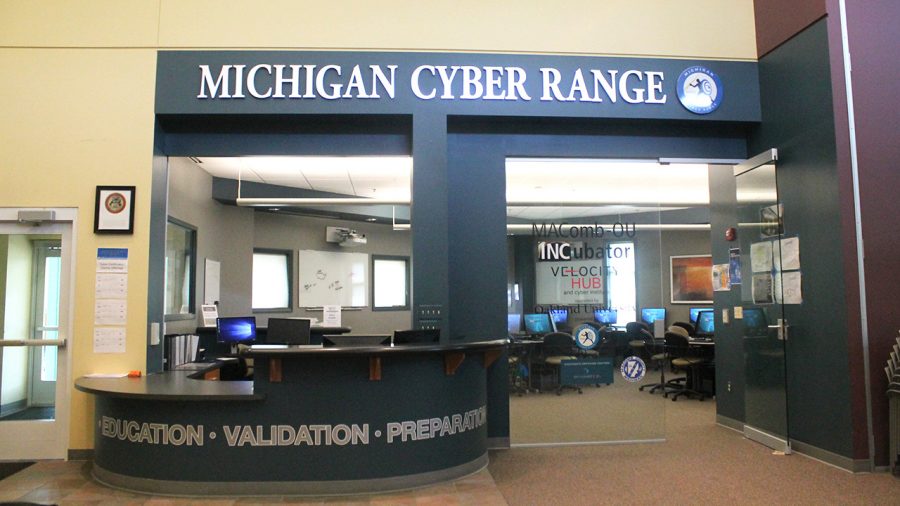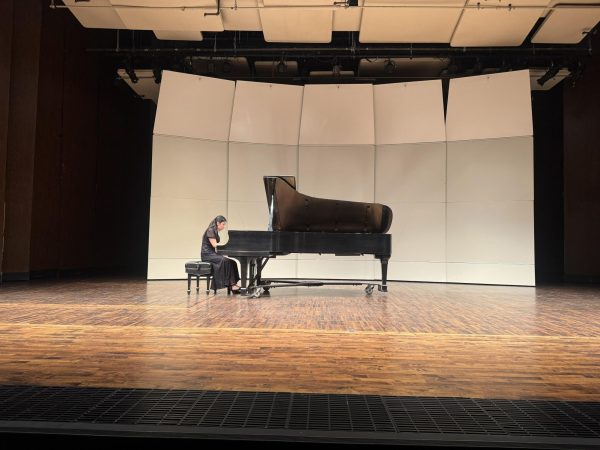Macomb-OU Incubator teaches educators about cybersecurity
Courtesy of Oakland University
The Macomb-Oakland University Incubator has launched a new program on cybersecurity.
A new program launched by the Macomb-Oakland University Incubator is teaching high school educators the ins and outs of cybersecurity. Located at the on-site cyber range at the Velocity Hub, Cybersecurity Essentials for Educators has teachers learn about malware, the dark web and various forms of cybersecurity.
To Mathew McMurray, lead cybersecurity instructor at the Macomb-OU Inc., today’s cybersecurity teachers desperately need a class like this to connect with their students.
“Their roles have always been in accounting or business or other areas other than computer cybersecurity,” McMurray said. “We are teaching them the essentials that they would need to know to be able to connect with their students on some level.”
According to McMurray, students view their computer-based classes as electives that can be easily blown off, while teachers have difficulties getting students to connect with the materials.
“We are trying to educate the teachers so that they can approach the students and the students will take them seriously because [the teachers] know what they are talking about,” McMurray said.
The idea for the course came from a Macomb Intermediate School District administrator who told the Macomb-OU Inc. that teachers wanted to be better prepared for their cybersecurity classes.
“We actually developed a program from scratch for them,” McMurray said. “[The district] could not find anything out there that was not gonna cost them a ton of money, and I think for the entire class we were charging $15 per teacher per day.”
McMurray believes that the Macomb-OU Inc. program is unique in the state of Michigan for its focus on teaching educators the basics of cybersecurity.
One of the program’s features is a guided tour of the dark web, the suspicious place only accessible through logging into certain websites. Once inside, the students were able to find places to buy items such as drugs, illegal firearms, forged passports and pirated movies.
“[The tour] gave [students] a better understanding of what is there,” McMurray said. “Everybody knows about the regular internet, but not everybody knows about the dark web, and to give them a better understanding of the entire internet was helpful because now they are more aware of what is there.
“We wanted to show teachers ‘Hey, if your kids are getting fake IDs or they are getting torrents … this is where they are getting it from”.
Since the program’s students are tasked with handling dangerous software and accessing potentially harmful and illegal websites, teaching them on a regular school desktop is too risky. This is where the cyber range comes in.
“Think of it as a shooting range for computers,” McMurray said. “You can take something that is inherently dangerous like … malware, viruses and other types of malicious programs and software and you can use them in this secure environment without damage to the systems and external systems.”
In the cyber range, students use normal computers to log into virtual programs that emulate computers and work with the dangerous programs on the virtual computers. If the students end up wrecking a virtual computer, no harm no foul. Just hit reset and try again.
Sam Srauy, an assistant professor of communication, is happy to see schools starting to take cybersecurity seriously.
“To the extent that [cybersecurity] is codified and formalized [for] a classroom seems to be fairly recent, so that is great,” Srauy said.
Already supportive of the class for computer teachers, Srauy is not against extending this kind of training to all educators.
“If you think of computers as something special, then you might not think why a sociology teacher or a PE teacher need [cybersecurity training],” Srauy said. “But computers are not [special], computers are a tool, so everybody needs to learn how to use it.”





